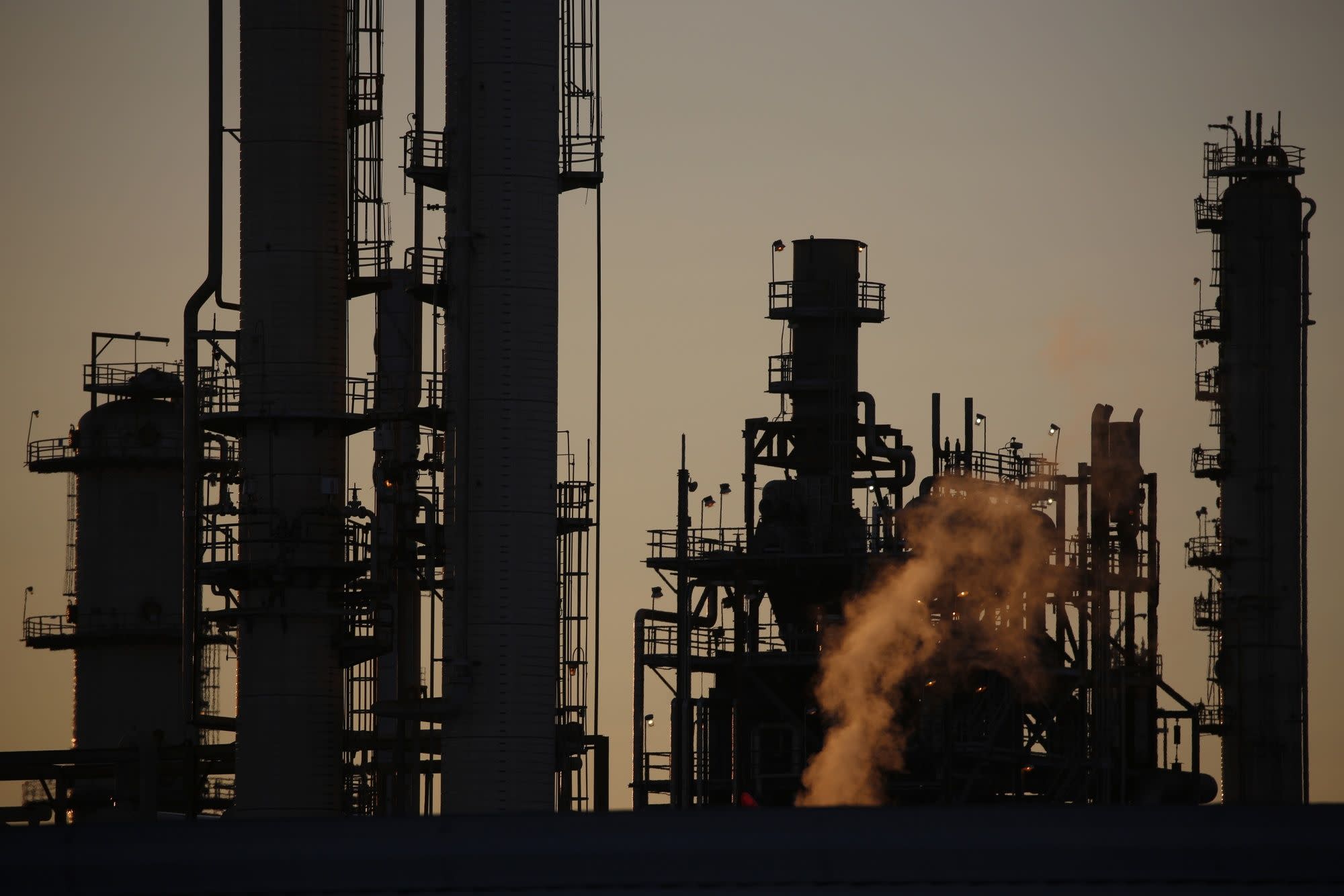Oil Falls By Most in 6 Months as Recovery Falters

(Bloomberg) —
Oil plunged by 7%, the most since September, as vaccination efforts in some parts of the world stalled, casting uncertainty over the speed of an economic recovery and a full rebound in global oil demand.
West Texas Intermediate crude futures declined for a fifth session, the longest stretch of daily losses in more than a year. China lifting less crude and U.S. Gulf Coast refineries still recovering from a cold blast last month have put short-term pressure on physical oil demand. Meanwhile, some efforts to distribute Covid-19 vaccines have faltered and a stronger dollar is reducing the appeal of commodities priced in the currency.
The collapse in prices has wiped out more than two weeks of gains for the U.S. benchmark crude and represents a setback for a market that has otherwise staged a remarkable recovery since the depths of the pandemic. Oil futures are still up well over 20% since the start of the year with the world’s largest oil producers reining in supply and travel around the world recovering post-lockdowns.
“Short-term supply and demand considerations are temporarily casting a shadow over the bright future that is likely to arrive in the third quarter of the year,” said Tamas Varga, an analyst at PVM Oil Associates Ltd.
Global benchmark Brent also notched considerable losses, falling by the most since June on Thursday. Oil’s move lower may also be linked to some unwinding of long positions by commodity trading advisors as daily price gains or losses of more than 3% can often trigger funds to quickly unload. “This is a risk-off moment with some of the cyclical trades,” said Rob Haworth, senior investment strategist at U.S. Bank Wealth Management.
Beyond headline prices, crude’s closest timespreads are signaling that, despite the outlook for a longer-term recovery, near-term demand remains fragile. WTI’s front-month contract is trading at a discount again to the following month, while Brent’s backwardation — a bullish structure signaling tighter supplies — is weakening.
“The plunge is all about the demand outlook,” said Edward Moya, senior market analyst at Oanda Corp. “This will be a temporary retreat, but the concern is that we don’t have any strong signs that Europe is about to turn the corner here.”
The global recovery from the pandemic remains uneven. In Brazil, Covid-19 cases are expanding by record numbers and crimping activity, while in the U.K., delayed shipments of AstraZeneca Plc’s vaccine will cut supply this month.
“Demand hasn’t gotten as far back to normal as we expected, with the vaccine news out of Europe definitely concerning in terms of short-term demand,” said Michael Lynch, president of Strategic Energy & Economic Research. “That’s making people think that the time for $70 Brent has not yet come.”
(An earlier version corrected the lead to say oil’s decline was the biggest since September.)
For more articles like this, please visit us at bloomberg.com
Subscribe now to stay ahead with the most trusted business news source.
©2021 Bloomberg L.P.



